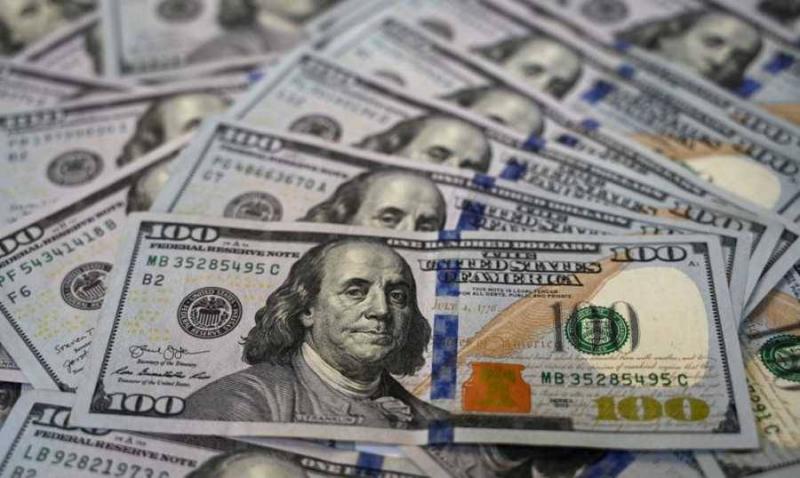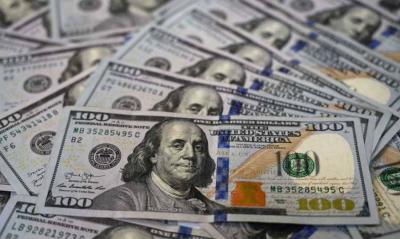Accounts of what is known as "fresh dollars" have started to become a phenomenon, albeit limited in size, in Lebanese banks. This phenomenon emerged on the sidelines of the current banking crisis, after dollar holders who deposited their money in banks before the collapse found it impossible to withdraw it in U.S. cash or convert it to Lebanese pounds at the parallel market rate. It was an attempt by the Central Bank of Lebanon to stimulate economic stagnation and facilitate the flow of liquidity to citizens by issuing Circular No. 150, which permitted banks to open separate and free accounts in "fresh dollars" for their clients, to meet their needs for foreign currency, away from the restrictions imposed on their original accounts by de facto, and without legal backing. Can these deposits be relied upon as a complementary or alternative system to the collapsed banking system?
When former Minister of Finance Ali Hassan Khalil announced in September 2019 that there was a need to restructure public debt and coordinate with the central bank and banks, questions began to arise about the state's ability to pay the November 2019 Eurobond maturities. At that time, the Governor of the Central Bank, Riad Salameh, and some senior Lebanese bankers were in Washington for meetings with the International Monetary Fund and the World Bank, and the governor confirmed during these meetings that the central bank would pay the Eurobond maturities for the state and record it as a debt to it. Indeed, in November, the Eurobond maturities were paid, and the banking sector was relieved to settle this obligation. Then discussions and expectations began about the March 2020 maturity, where there were also confirmations from the governor that the payment would be made and thus no need to fear. However, despite the governor's reassurances, capital began to flee Lebanon amid leaks fearing the state might default on the payment, until Prime Minister Hassan Diab's announcement in March 2020 of a default, which undermined all plans of the central bank in this regard, as when a government decision comes out not to service the debt, the central bank cannot override it, since the bonds are a debt on the state, not on it.
At that time, the Central Bank's foreign currency reserves were estimated at around 33 billion dollars, while the maturity the state defaulted on was estimated at one and a half billion dollars only, while all Eurobond maturities for the year 2020 were equivalent to three billion dollars. The unorganized default and the lack of attempts to communicate with creditors, such as global investment funds or domestic creditors, led correspondent banks to make decisions to curb dealings with Lebanese banks, which in turn led to a downgrade of Lebanon's credit rating and that of its banks. During this time, some banks were waiting for transfers from abroad to bank accounts in Lebanon, and there were many customers depositing their cash in banks, especially from the Lebanese communities in Africa and the Gulf countries. In anticipation of this situation, the Central Bank issued the essential circular No. 150 on April 9, 2020, which established "fresh" deposits, allowing for transfers or cash deposits after April 9, 2020, to be placed in a "fresh" account where clients could manage or transfer them abroad. The bank later amended this circular, requiring each bank to maintain reserves equal to 100% of the deposit value in the correspondent bank.
The significance of the circulars issued by the governor is that they established a new life in the banking sector, and "fresh dollar" deposits began to form a limited phenomenon in banks, according to banking expert Dr. Ghassan Al-Ayyash, who explained that "fresh" deposits did not emerge from free decisions of bank customers nor are they a type of investment; rather, they resulted from the need to trade in foreign currency amidst the inability to use original deposits. Thus, it is not expected that these deposits will grow significantly because their owners deposit money in them within the limits of their narrow needs for foreign currency, primarily fed by remittances from non-residents, which reached about 6.5 billion dollars last year.
These cash deposits reached, according to Central Bank sources, less than two billion dollars, "less than 2% of total bank deposits in foreign currencies, whose fate remains uncertain until a recovery plan is adopted by the government, which is still a distant prospect," according to Al-Ayyash who rules out that "fresh" deposits will turn into a large percentage of deposits in foreign currencies before confidence is restored in the banking and financial systems as a whole, which would encourage customers to nourish these accounts with currencies without fearing they would turn into illusory or bookkeeping funds like the money deposited before the current collapse. The return of trust is a long process and is not limited to trust in the banking system but extends to trust in the entire political system and in the political and economic governance of the country.
He affirms that "it is very early to rely on these deposits as a complementary system or an alternative to the collapsed system, and it is also premature to count on them to compensate for the decline in banking activity that has suffered severe damage since the collapse in the fall of 2019." Between June 2019 and June 2022, that is, during three years of the crisis, lending to residents declined by 57%, while lending in foreign currencies fell by 67%. Resident deposits decreased by 24%. The total balance sheet of banks as a whole dropped by a third over these three years. In one year, from June 2021 to June 2022, bank assets decreased by 6%, deposits by 7%, and loans to customers by 25%, with a contraction of resident deposits of 24%. In other words, bank deposits have declined by a quarter over the past three years, with a 7 percent decline in one year.
This gap in the banking system, in Al-Ayyash's opinion, "met some essential needs of bank depositors and arose from the Central Bank's measures that separated new deposits from old deposits. The draft capital control law, which has changed several times without being approved by the parliament, has ensured in several articles the respect for the privacy of new deposits. Perhaps the intent behind this reassurance was to assure depositors that new deposits are protected and will not meet the dismal fate of old deposits, and the implicit intention behind this reassurance might be to encourage the creation and development of this new system in a way that confines the problem to old deposits, perhaps they would eventually become a thing of the past."




